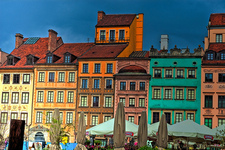Learn more about Poland in our Poland expat guide or read more expat experiences in Poland.
About you
 Q: Where are you originally from?
Q: Where are you originally from? Q: How long have you lived in Poland?
Q: Did you move with a spouse/children?
Q: Why did you move; what do you do?
About Warsaw
Q: What do you enjoy most about Warsaw, how’s the quality of life?
Q: Any negatives? What do you miss most about home?
Q: Is Warsaw safe? Are there any areas expats should avoid?
Q: How would you rate the public transport in Warsaw? Do you need to own a car, or is the public transport sufficient for getting around? What are the different options?
Q: How would you rate the healthcare in Warsaw?
About living in Warsaw
Q: Which are the best places/suburbs to live in Warsaw as an expat?
Q: How do you rate the standard of housing in Warsaw?
Q: What’s the cost of living compared to home? What is cheap or expensive in particular?
Q: What are the locals like; do you mix mainly with other expats?
Q: Was it easy meeting people and making friends in Warsaw?
About working in Warsaw
Q: Did you have a problem getting a work visa/permit for Poland?
Q: What’s the economic climate like in Warsaw, is there plenty of work?
Q: How does the work culture differ from home?
And finally…
Q: Is there any other advice you like to offer new expat arrivals?
> Are you an expat living in Poland? We'd love to hear from you, so please contact us to share your story.


